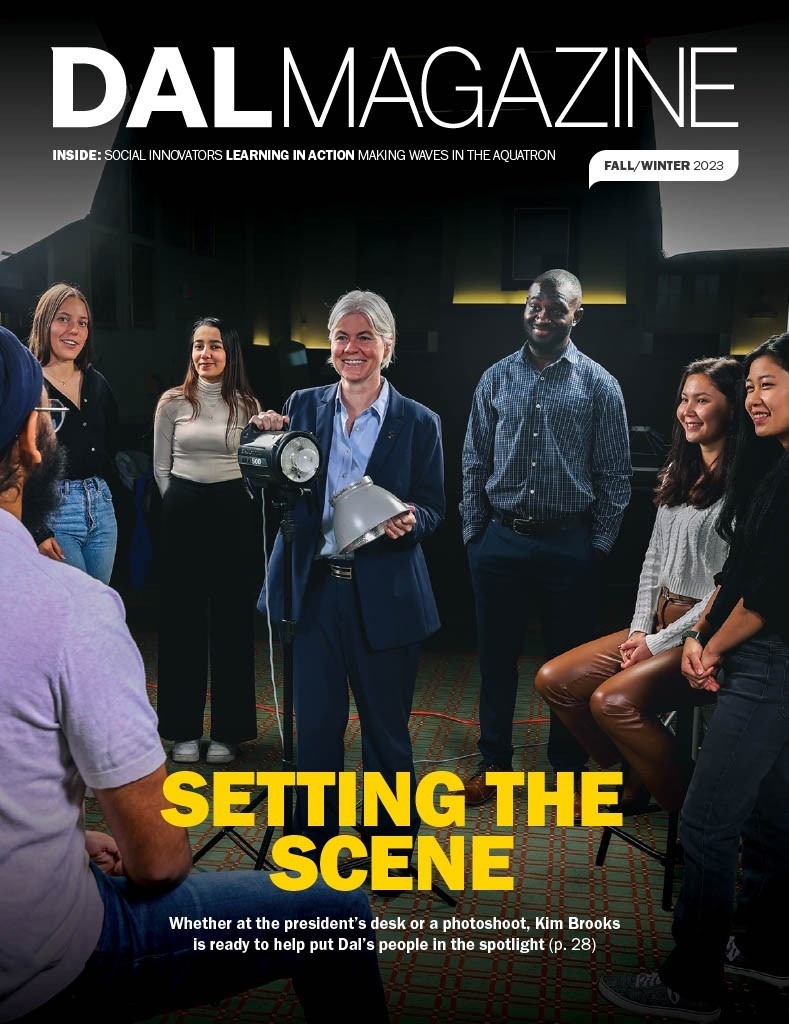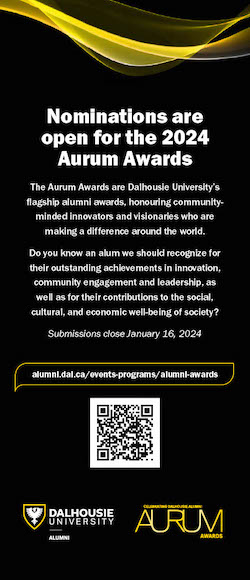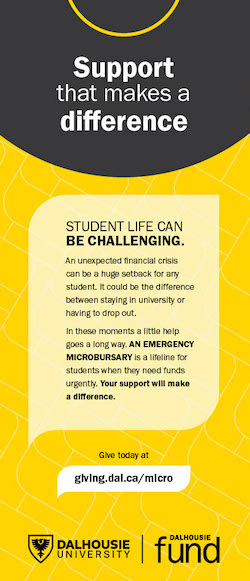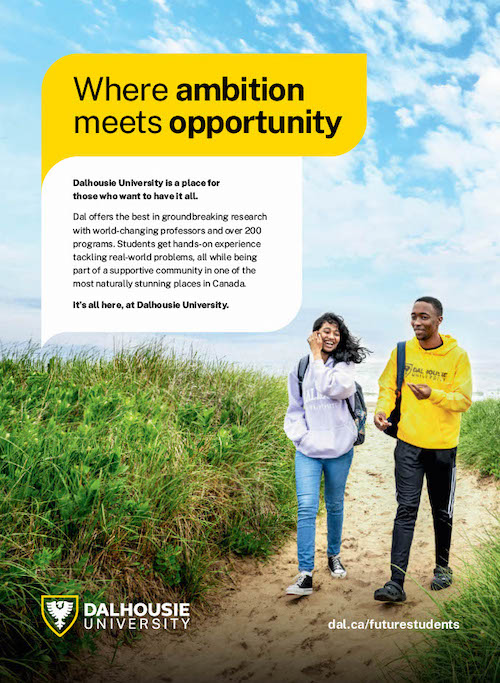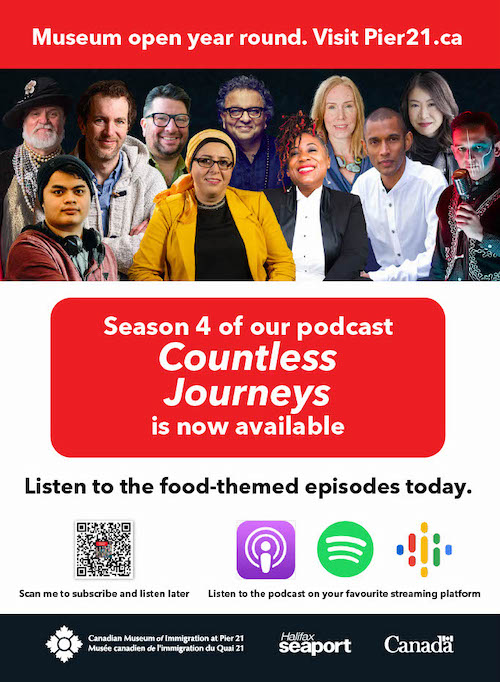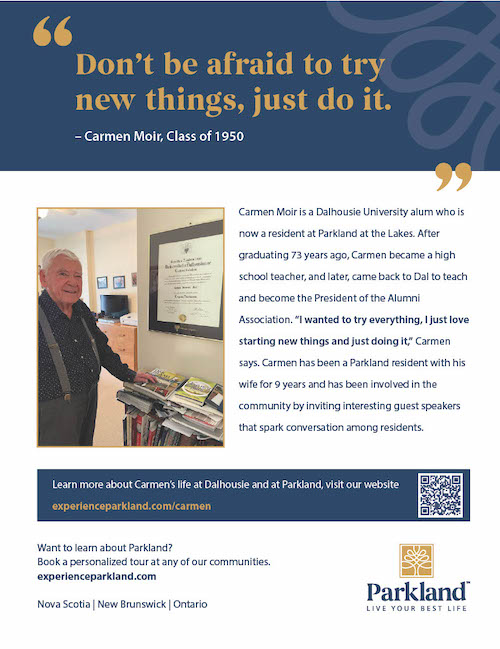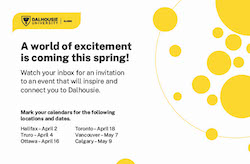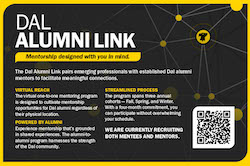DAL Magazine

DAL Magazine shines a light on Dal’s innovative thinkers, groundbreaking research, and influential alumni.
In the Fall/Winter 2023 issue, you'll find feature stories on Dal's 13th president and vice-chancellor, Dr. Kim Brooks, a look at how health clinics enrich both the community and student learning, advice on how to keep calm and carry on in the age of generative AI, Dal Law alumni who are working to make the world a more inclusive, equitable, and just place, and more.
How to read DAL Magazine:
- Download the Fall/Winter 2023 PDF edition [PDF 20.9 MB]
- Read on ISSUU.
- Click through the stories below.
- Pick up a physical copy on campus
- Request a physical copy by mail by emailing arecords@dal.ca

Editor's note: We acknowledge a caption error on page 12 of the print edition of DAL Magazine. The description for “Community Meet & Greet” was transcribed incorrectly. The digital version has been corrected. We apologize for the error.
Thanks to our advertisers
Get DAL Magazine delivered to your inbox. We’ll send you an email when the magazine is published twice per year. Email arecords@dal.ca to opt-in to receiving the magazine in digital format.
Want a print copy? Email us at arecords@dal.ca to request the magazine right to your mailbox or to change your mailing address for the print magazine.
For editorial submissions or questions, please email editor@dal.ca
To submit a Class Note, please click here or email classnotes@dal.ca.
To submit an In Memoriam notice, please email alumni.records@dal.ca

